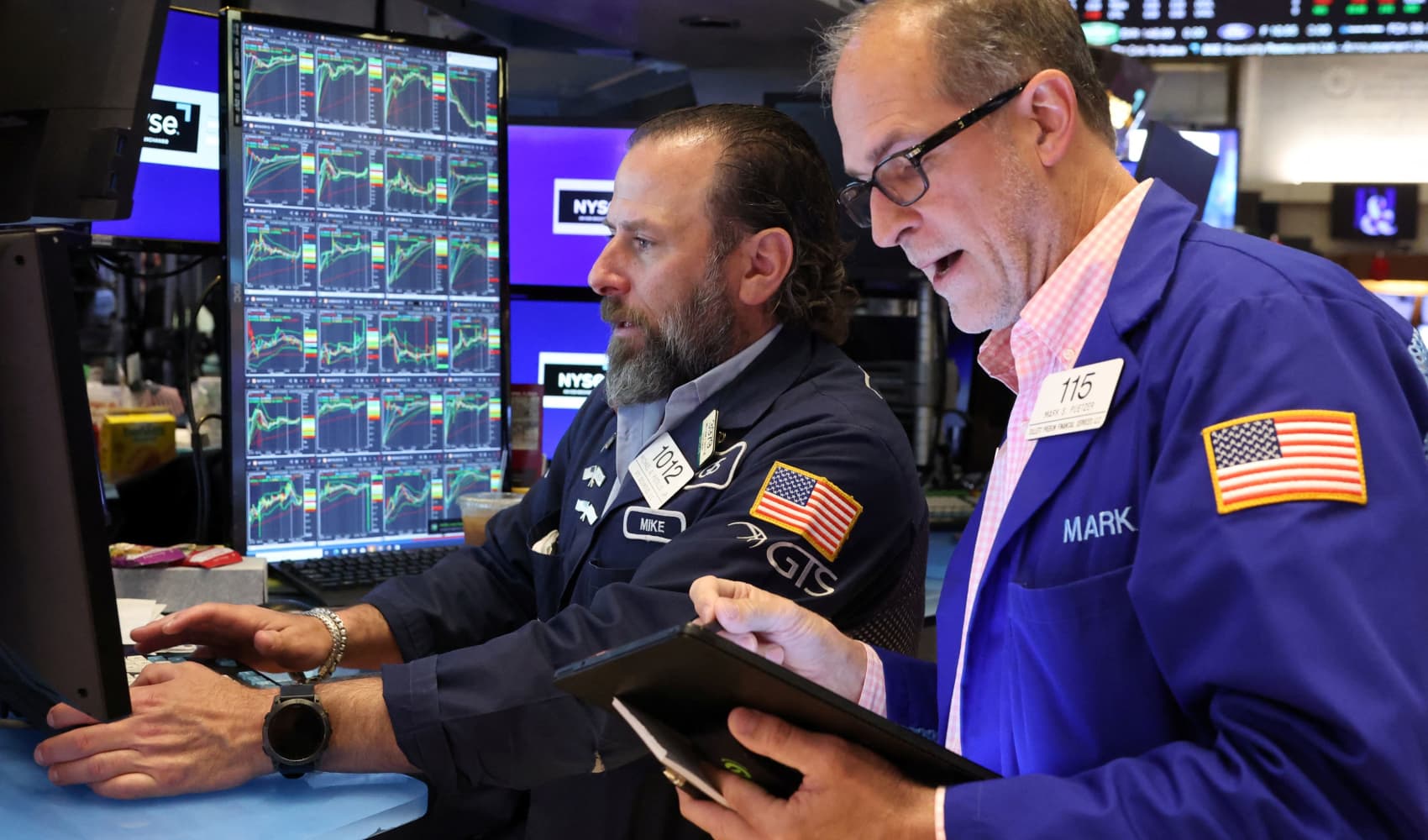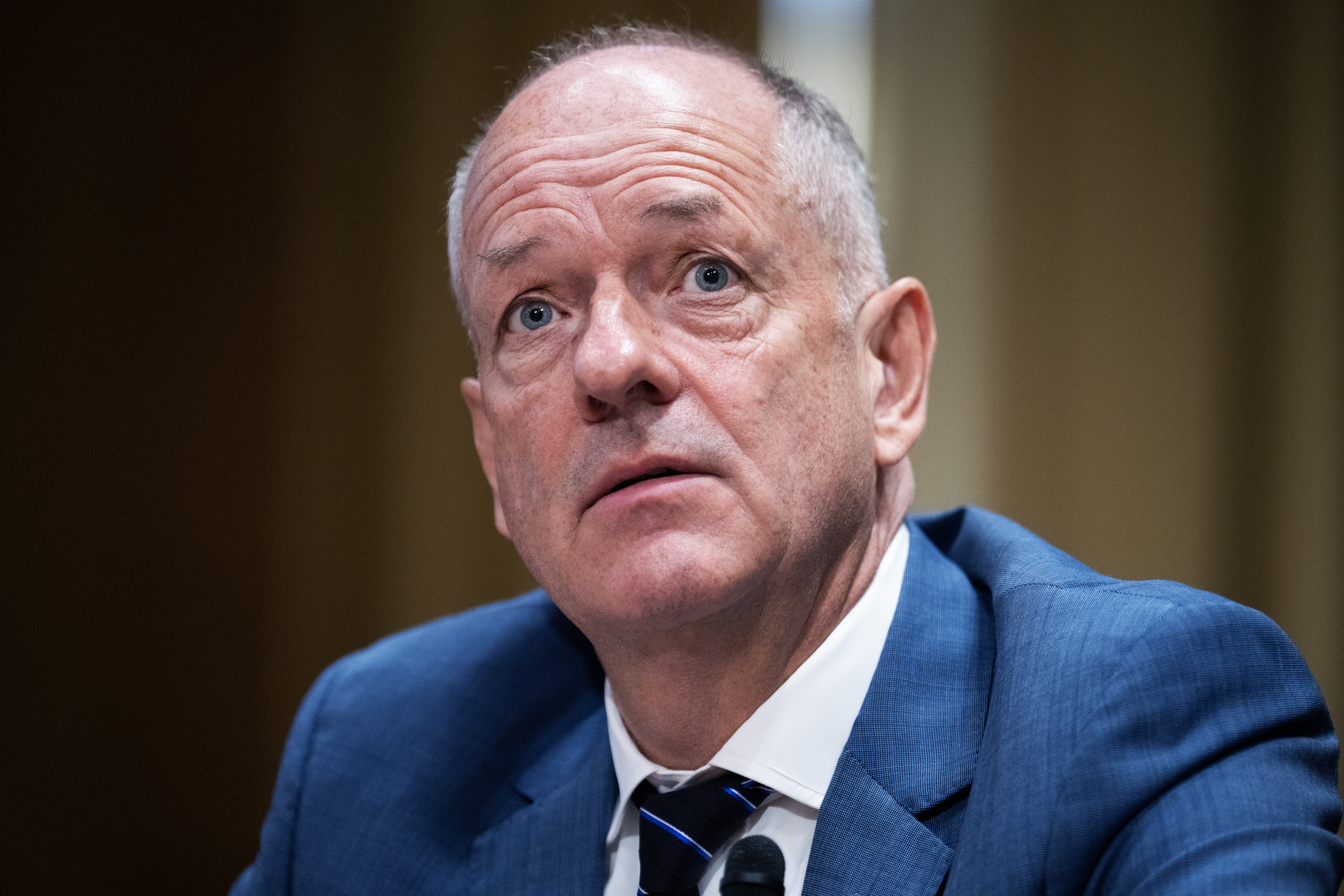Cramer's Take: Is Churchill Downs a "One-Trick Pony"?
Cramer's Lightning Round: Is Churchill Downs a One-Trick Pony?
Unpacking Cramer's Rapid-Fire Stock Takes
It's a whirlwind of market analysis! Jim Cramer, the high-energy host of CNBC's "Mad Money," recently unleashed his lightning round, offering rapid-fire opinions on various stocks based on caller questions. It's a segment known for its brevity, but sometimes, even a short soundbite can pack a punch. This article dives into Cramer's specific remarks, focusing on his assessment of Churchill Downs and providing a broader context to his recommendations.
UnitedHealth: A Change of Heart?
From Negative to Neutral-Positive?
Cramer's commentary on UnitedHealth was particularly interesting. He admitted to having a previously negative outlook on the stock, but now suggests considering starting a position around the $400 mark. Why the shift? Could it be changing market dynamics, revised company guidance, or a reassessment of the healthcare sector as a whole? It's crucial to dig deeper to understand the reasoning behind this significant change of opinion.
Analyzing the Rationale Behind the Recommendation
While Cramer's lightning round offers quick takes, understanding the "why" is essential for any investor. Consider exploring UnitedHealth's recent financial reports, news articles, and analyst ratings to determine if Cramer's assessment aligns with your own research. Has their growth potential improved? Are they navigating regulatory challenges effectively? These are key questions to answer.
Churchill Downs: The "One-Trick Pony" Assessment
Decoding the Derogatory Description
Ouch! Cramer didn't mince words when discussing Churchill Downs, labeling it a "one-trick pony." What does this mean for investors considering exposure to the iconic horse racing venue and entertainment company? Is he suggesting limited growth potential beyond its core racing events, or is there more to it?
Beyond the Kentucky Derby: Exploring Churchill Downs' Business
Churchill Downs is synonymous with the Kentucky Derby, but the company's operations extend far beyond that single event. They own and operate racetracks, casinos, and online wagering platforms. Is Cramer's assessment neglecting these other aspects of the business? A deeper dive is crucial to determine the validity of his claim. Consider examining their revenue streams, growth strategies, and competitive landscape.
Potential Concerns Cramer Might Be Highlighting
What specific factors could lead Cramer to label Churchill Downs a "one-trick pony"? Perhaps he's concerned about:
- Over-reliance on a single event: The Kentucky Derby, while highly profitable, is only one day of the year.
- Limited geographic diversification: Concentration of operations in specific regions could pose risks.
- Competition from other entertainment options: Facing increasing competition from other forms of leisure and gaming.
- Regulatory challenges: Changes in gambling laws could impact their business model.
Super Micro Computer: Opting for Dell Instead
The Appeal of a Tech Giant
When asked about Super Micro Computer, Cramer suggested buying Dell instead. This implies that he sees Dell as a more stable or promising investment within the tech sector. Why would he steer investors towards Dell over a potentially higher-growth, albeit smaller, company like Super Micro Computer?
Comparing Super Micro Computer and Dell: A Quick Rundown
While a full comparison requires dedicated research, here's a brief overview to understand the potential rationale:
- Market Capitalization: Dell is a significantly larger company with a broader market presence.
- Diversification: Dell offers a wider range of products and services, reducing risk.
- Stability: Dell's established history and financial strength provide greater stability.
- Growth Potential: Super Micro Computer might offer higher growth potential but also carries greater risk.
The Risk-Reward Tradeoff
Cramer's suggestion highlights the risk-reward tradeoff inherent in investing. Super Micro Computer might appeal to investors seeking aggressive growth, while Dell might be a more suitable option for those prioritizing stability and lower risk. The best choice depends on individual investment goals and risk tolerance.
Jim Cramer's Guide to Investing: A Valuable Resource?
Building Long-Term Wealth: Is the Guide Worth It?
CNBC offers Jim Cramer's Guide to Investing for free. Should investors download it? Any free resource from a seasoned investor can be valuable, providing foundational knowledge and insights. However, remember to supplement it with your own research and due diligence.
What to Expect from the Guide
Cramer's investing guide likely covers essential topics such as:
- Fundamental analysis: Evaluating a company's financial health and performance.
- Technical analysis: Using charts and patterns to predict stock price movements.
- Portfolio diversification: Spreading investments across different asset classes to reduce risk.
- Risk management: Understanding and mitigating potential losses.
The CNBC Investing Club: Is It Right for You?
Following Cramer's Investment Decisions: A Closer Look
The CNBC Investing Club provides access to Cramer's investment insights and decisions. Is it a worthwhile investment for aspiring investors? Consider your own investment experience, available time, and financial goals before joining. It's crucial to remember that past performance is not indicative of future results.
What to Consider Before Joining
Evaluate the following factors before subscribing to the CNBC Investing Club:
- Cost: Assess the subscription fee and whether it aligns with your budget.
- Time commitment: Determine if you have the time to follow Cramer's recommendations and conduct your own research.
- Investment experience: Consider your level of investment knowledge and comfort with active trading.
- Investment goals: Ensure that Cramer's investment style aligns with your financial objectives.
The Importance of Independent Research
Beyond the Soundbites: Doing Your Homework
Cramer's lightning round offers quick insights, but it's crucial to conduct independent research before making any investment decisions. Don't rely solely on soundbites or opinions – dig deeper and form your own informed conclusions.
Resources for Independent Research
Utilize various resources to conduct thorough research, including:
- Company financial reports: Analyze income statements, balance sheets, and cash flow statements.
- Industry analysis reports: Understand the competitive landscape and market trends.
- News articles and press releases: Stay informed about company developments and industry events.
- Analyst ratings and reports: Consider the opinions of professional analysts, but always exercise independent judgment.
Understanding Risk Tolerance
Are You a Risk-Averse or Risk-Tolerant Investor?
Cramer's recommendations might be suitable for some investors but not for others. Understanding your own risk tolerance is crucial for making appropriate investment choices. Are you comfortable with potentially significant losses in exchange for the possibility of higher returns, or do you prefer a more conservative approach?
Aligning Investments with Your Risk Profile
Ensure that your investment portfolio aligns with your risk tolerance. If you are risk-averse, consider investing in lower-volatility assets such as bonds or dividend-paying stocks. If you are risk-tolerant, you might consider allocating a portion of your portfolio to higher-growth stocks or alternative investments.
Diversification is Key
Don't Put All Your Eggs in One Basket
Cramer's lightning round highlights individual stock picks, but it's essential to remember the importance of diversification. Spreading your investments across different asset classes, sectors, and geographic regions can help reduce risk and improve long-term returns.
Creating a Well-Diversified Portfolio
Consider diversifying your portfolio by investing in:
- Stocks: Representing ownership in companies.
- Bonds: Representing debt obligations.
- Real estate: Owning physical properties.
- Commodities: Investing in raw materials such as oil and gold.
- International investments: Expanding your portfolio beyond domestic markets.
Long-Term Investing vs. Short-Term Trading
Are You Investing for the Long Haul or Trying to Make a Quick Buck?
Cramer's rapid-fire commentary often caters to short-term trading strategies, but long-term investing is generally considered a more prudent approach for building wealth. Decide whether you are investing for the long haul or trying to capitalize on short-term market fluctuations.
The Benefits of Long-Term Investing
Long-term investing offers several advantages, including:
- Compounding returns: Earning returns on both the principal and accumulated interest.
- Reduced transaction costs: Lower fees associated with less frequent trading.
- Tax advantages: Potential for lower capital gains taxes on long-term investments.
- Less emotional decision-making: Avoiding impulsive reactions to short-term market volatility.
The Importance of Staying Informed
Keeping Up with Market Trends and Company News
The market is constantly evolving, so it's crucial to stay informed about market trends, company news, and economic developments. Regularly monitor your investments and adjust your portfolio as needed to stay aligned with your financial goals.
Resources for Staying Informed
Utilize various resources to stay informed, including:
- Financial news websites: such as CNBC, Bloomberg, and the Wall Street Journal.
- Company websites: for investor relations information and press releases.
- Financial advisors: for personalized advice and guidance.
Don't Let Emotions Drive Investment Decisions
Staying Rational in the Face of Market Volatility
Emotions can often cloud judgment and lead to poor investment decisions. Avoid letting fear or greed drive your actions. Stick to your investment plan and avoid making impulsive decisions based on short-term market fluctuations.
Strategies for Managing Emotions
Implement strategies for managing emotions, such as:
- Developing a well-defined investment plan.
- Setting realistic expectations.
- Avoiding excessive monitoring of your portfolio.
- Seeking advice from a trusted financial advisor.
Conclusion: Navigating Cramer's Lightning Round and Your Investments
Jim Cramer's lightning round offers a rapid-fire glimpse into his current market perspectives. His assessment of Churchill Downs as a "one-trick pony" should prompt further investigation into the company's broader business strategy and growth potential. Similarly, his views on UnitedHealth and Super Micro Computer provide valuable points for consideration, but should never replace your own thorough research. Ultimately, informed investment decisions require independent analysis, an understanding of your risk tolerance, and a well-diversified portfolio. Remember to stay informed, manage your emotions, and prioritize long-term financial goals.
Frequently Asked Questions
- What exactly does Jim Cramer mean by "one-trick pony" in the context of a stock?
It usually suggests he believes the company's success relies heavily on a single product, service, or event, limiting its growth potential and making it vulnerable to market changes.
- How much weight should I give to Cramer's lightning round stock picks?
Consider them as starting points for further research, not definitive recommendations. Always conduct your own due diligence and analysis before investing.
- Is the CNBC Investing Club worth the subscription fee?
It depends on your individual needs and investment style. If you're a beginner looking for guidance and are comfortable with Cramer's approach, it might be helpful. But factor in the cost and time commitment required.
- Where can I find more information about Churchill Downs beyond the Kentucky Derby?
Check their investor relations website for financial reports, press releases, and presentations. Also, research industry reports on the gaming and entertainment sectors.
- What are some alternative investment options to consider if I'm not comfortable with individual stock picks?
Consider exchange-traded funds (ETFs) or mutual funds that provide diversified exposure to specific sectors or asset classes. A financial advisor can help you choose options aligned with your risk tolerance and goals.



